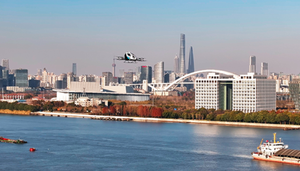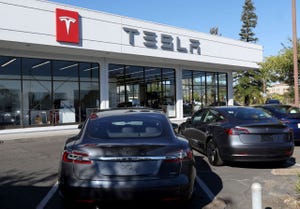Is Farmer Technology Mistrust Holding Back the Future of Agriculture?Is Farmer Technology Mistrust Holding Back the Future of Agriculture?
Farmers can drastically shorten the timeline it takes to learn their land and optimize their operations by leveraging AI

Agriculture has always been a profession steeped in tradition, requiring years of experience to master the nuances of the land. Farmers often take 10 to 15 years to fully master the unique characteristics of their fields, learning how to optimize yield and make their operations profitable. Yet, even seasoned farmers can struggle to achieve consistent success, especially as environmental conditions become increasingly unpredictable due to climate change.
This is where AI in agriculture becomes not just interesting, but revolutionary. By leveraging AI, farmers can drastically shorten the timeline it takes to learn their land and optimize their operations. AI systems can analyze fields in real time, making recommendations for inputs like water, fertilizer, and planting schedules. This helps farmers make informed decisions that can lead to better yields and greater profitability much faster than traditional methods.
The Impact of Climate Change
Climate change adds another layer of complexity to farming. Traditional practices that may have worked well in the past are becoming less effective as weather patterns shift. Unpredictable rainfall, fluctuating temperatures, and extreme weather events are now the norm rather than the exception. AI can help farmers adapt to these changes by providing data-driven insights that take into account the latest climate models and environmental data along with agriculture extension university research, allowing them to adjust their practices accordingly.
The Status Quo of AI and Data Collection in Agriculture
Despite the clear benefits, data collection in agriculture is still in its infancy. Many farms collect data partially, only focusing on specific aspects of their operation, such as soil moisture or crop growth, without integrating other crucial factors like weather patterns. This fragmented approach makes it difficult to get a comprehensive view of the farm's health and productivity. Additionally, data collection is often not done in real time, which limits its usefulness in making timely decisions. As an example, most systems report every four hours. Newer, more precise systems report every 2.5 minutes, making it possible to detect small changes.
Challenges in Farm Data Collection
One of the major challenges in agricultural data collection is the variability of the data itself. No two seasons are the same, and crops go through different stages of growth that require different inputs and care. This variability is further complicated by the diverse range of crops grown, the changing climate, and the unique geographic location of each farm. Factors such as soil type, water availability, and tillage practices can vary greatly, even within a single farm. This makes it crucial to collect and analyze data in real time, year after year, to make accurate predictions and recommendations.
The Reluctance to Adopt New Technologies
Despite the potential benefits, farmers have historically been slow to adopt new technologies. Farming is an inherently risky business, and many farmers are understandably risk-averse. A few seasons can be enough to jeopardize a farm's future, so farmers tend to make conservative decisions to minimize risk. According to the USDA, the average age of a farmer in the United States is 58 years old, meaning many started farming in a very different era. This age factor also contributes to a reluctance to embrace new, unfamiliar technologies, but also a requirement given today's labor shortages to remain profitable.
Bridging the Gap: Making AI and Data Collection Accessible
To make AI and data collection a reality in agriculture, we need to bridge the gap between the immediate return on investment (ROI) and the value that data collection and AI can bring, while packaged in a simple, user-friendly manner. One approach is to create products that provide immediate labor savings and real-time data insights, offering farmers a clear and tangible ROI in the short term. For instance, AI-powered tools could help farmers monitor their operations remotely, reducing the need for time-consuming visual inspections and allowing them to focus on other aspects of their business, such as marketing.
By reducing the opportunity cost of searching for problems that may not exist and by preventing yield loss from unnoticed issues, AI can help farmers increase their efficiency and productivity. Over time, as farmers see the benefits of these technologies, adoption rates are likely to increase, paving the way for a more data-driven, sustainable approach to agriculture.
In conclusion, AI in agriculture holds the potential to revolutionize the way we farm. By shortening the learning curve, adapting to climate change, and making data collection more comprehensive and accessible, AI can help farmers optimize their operations, reduce risks, and ensure their long-term success in an increasingly challenging environment.
This article first appeared in IoT World Today's sister publication AI Business.
About the Authors
You May Also Like






